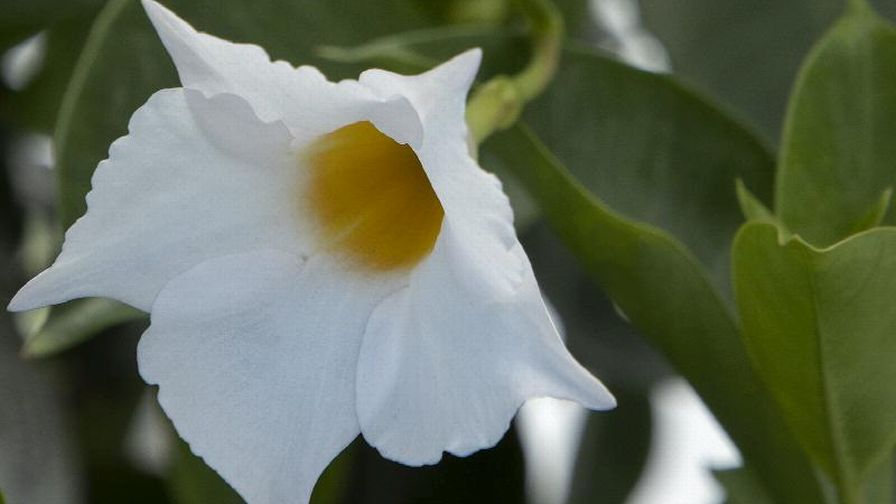Beneficial insects will be hitching a ride to garden centers on every 1, 2, and 5-gallon Monrovia Mandevilla. The climbing vines with bold tropical flowers will now come with their own defense system, helping the plant to thrive in home gardens.
“We all know that Mandevilla are a favorite plant for spider mites and thrips, and these pests can do a lot of damage to the plants,” says Trae Crocker, plant protection coach at Monrovia. “Our Integrated Pest Management teams at all Monrovia nurseries are using a multi-layered approach to prevent issues and make sure the plants being shipped out are thriving.”
Teams at Monrovia’s Georgia and California nurseries have already applied more than five million cucumeris, andersoni, californicus, and persimilis predatory mites this year to mandevilla crops. They have also added a new mite species with a bugline system.
Now, Monrovia is providing this natural solution to consumers by attaching a beneficial insect sachet to each larger-size mandevilla. The sachet allows for a slow release of beneficial cucumeris mites over a few weeks to help protect the plants. The main prey of this mite is several species of thrips as well as broad and cyclamen mites.
“The combination of these three beneficials will help with spider mite and thrips control even after it leaves our nurseries,” says Crocker. “We are adding value for our customers and extended benefits to consumers.”
Crocker said the paper sachet can handle some water, but recommends the plants be kept away from overhead irrigation if possible.
Monrovia’s Sunvilla Mandevilla have a mounding habit that keeps these climbers well-behaved. They add long-lasting, free-flowing tropical color to the garden and are available in Red, White, Pink, or Giant Red varieties. Sunvillas are considered perennials in Zones 9-11 and annuals in cooler climates. They can also be overwintered indoors. Their twining stems can reach 15 to 20 feet.
“We are very proud of our IPM team and programs at Monrovia,” says Crocker. “Using these natural preventative methods helps us grow high quality, healthy plants that deliver unmatched beauty and performance for home gardens.”

